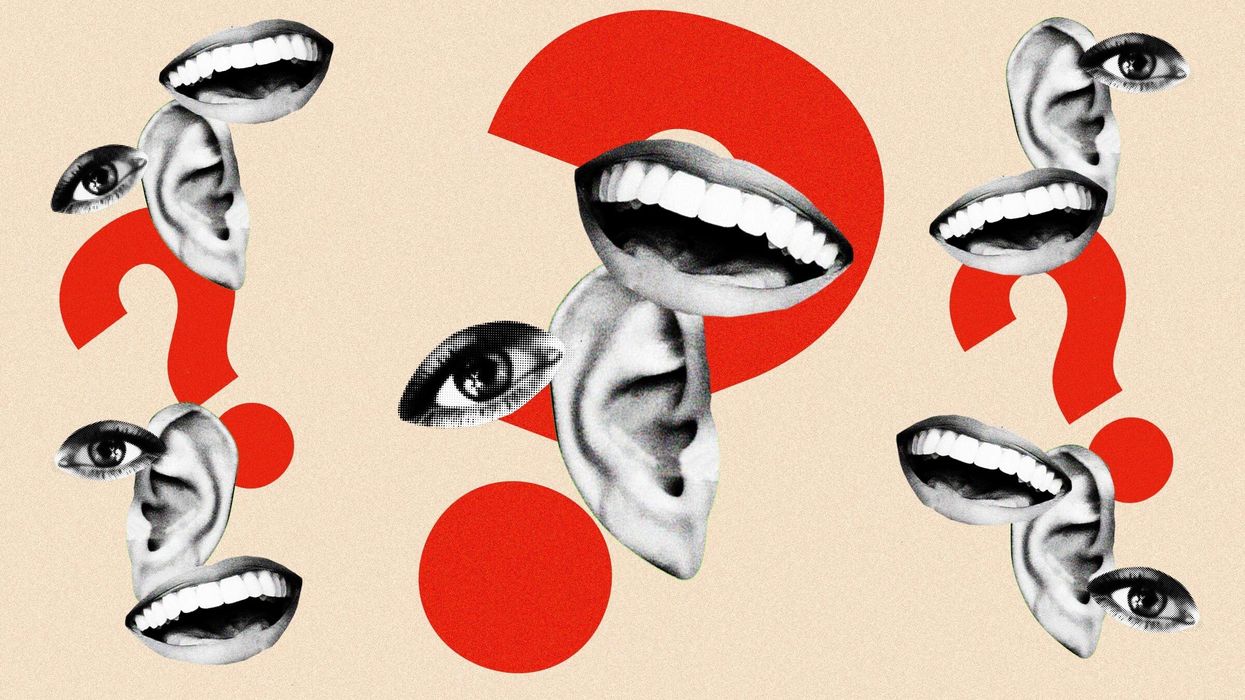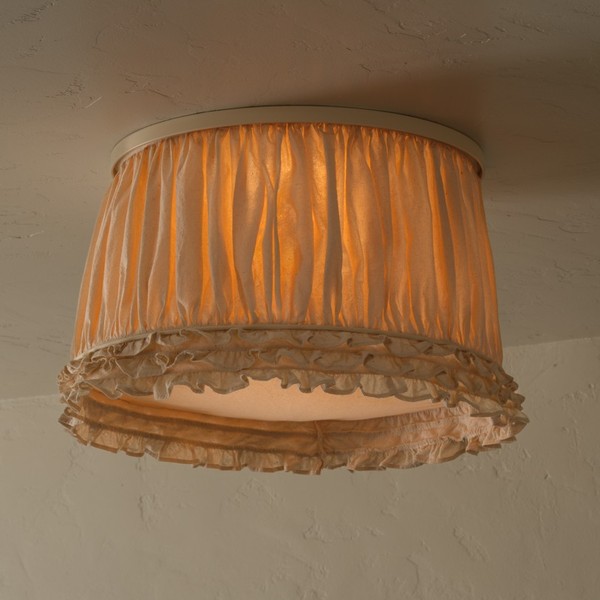The Lying Experiment: Can You Go Seven Days Without Lying?
I spent one week recording every lie I told, and the following week I wasn’t allowed to lie at all.

“Don’t worry, you’re not a very good liar,” my therapist says, with a smile clearly meant to reassure me. I know she’s trying to pull me out of a neurotic spiral, but my attention jumps elsewhere. Forget unearthing my childhood memories—not a good liar? I’m not sure why it pinched my ego. It’s not as though I consider myself a dubious woman of mystery, and while I’m certainly no Tony Soprano to her Dr. Melfi, I’m no Pollyanna either.
“My therapist called me a bad liar,” I pout to my friend Em over dinner an hour later. She laughs at my performative distress. With a little over fifteen years of friendship, she would be the best barometer of my transgressions. She mulls over my complaint, “Well, you aren’t so much a liar as you are a concealer.” That has an uncanny ring of truth. I was never one to actively spin a yarn, but I certainly kept the truth close to my chest. The secrets I’ve kept over the years certainly have the power to ignite a minefield of petty drama, but that secret-keeping has relied more on an absence of the truth rather than the presence of an untruth. Does that make me a liar? Digging even further, how much does a lie of omission pervert the truth?
Armed with a sixth-grade understanding of the scientific method, I decided then and there to conduct an experiment. I planned to record every lie I tell for seven days to determine a) how often I lie, b) what kinds of lies I tell, and c) that my therapist is wrong. For the next seven days after that, I’m not allowed to lie at all. Ideally, this will determine not only what consequences I face in telling the truth, but how difficult it is to be honest when put to the task.
To bolster my little experiment with scientific data, I did some cursory googling on statistical averages to find out how often people lie to each other. According to a 2021 study, it turns out that 75 percent of people lie zero to two times a day. The more prolific liars averaged around six lies a day and accounted for around 6% of participants. Based on the Journal of Basic and Applied Social Psychology released in 2002, around 60% of adults cannot have a 10-minute conversation without lying at least once.
Armed with about fifteen minutes of research, I begin the first week of my lying experiment.
The Lying Diary
On day one, I tell my first lie at 8:07 a.m. That sounds early, but keep in mind, I work New York hours from LA. Every morning I have an 8 a.m. meeting and my alarm is set for 7:45 a.m. If I so much as snooze once, I have about 50-60 seconds to roll out of bed, brush my teeth and hair, and put on a shirt that doesn’t look visibly slept in. With my brain still buffering, I hear my boss say, “You’re on that, right, Andie?” I reflexively unmute and say, “Yep, I got it.” Was I on what? Why am I giving a thumbs-up? (As far as I know, I didn’t drop the ball on anything that day so I must have ultimately been “on” whatever I said I was.)
Around an hour later my cat perches next to me and petitions to lick the dregs of milk from my cereal bowl. I concede and give him a little pat on the head, igniting my reflex to start cooing that strange pitter-patter dialogue we reserve for our pets: “You’re the cutest little kitty in the whole wide world.” Shit. My second lie—and so early in the day. Sure, he’s the apple of my eye, but as your run-of-the-mill orange tabby, there are certainly cuter cats in the “whole wide world.” As I type the lie into my notes app, I write: “Does it count if they can’t understand you? Is hyperbole a lie?”
By the late afternoon, I’m feeling pretty angelic about my transgressions. Turns out it’s really easy not to lie when you work from home all alone. I tried to note my small untruths; for example, with every “LOL” I texted, I had a slack-jawed and dead-eyed phone stare that was far from “laughing out loud.” Whenever someone asks, “How are you?”, we all answer, “I’m good,” with a knowing asterisk that it’s likely not the truth. These fall under the category of little semantic lies but ones we blithely ignore. Because in these instances, sometimes the truth is just… underwhelming? Depressing? A waste of time?
At around 4 p.m. I received a call from a friend: “Is she mad at me? I can tell she’s mad at me,” she barks through her car’s Bluetooth. Oh no, I’m talking to a Gemini. Last night, I was smoking weed with the allegedly mad “she” and I knew for a fact she was not happy with said friend. “I have no idea. She hasn’t said anything about being mad at you.” I grimaced. Not a total lie, since she technically said she was “annoyed,” among other unflattering things. I did what we all do when we have information we know someone can’t handle—I played dumb. “I don’t know, she’s probably not answering your texts because she’s busy.” She’s already over it by the time I finish waffling and asks, “What are you doing tonight?” It’s my only free night at home, and I had a gorgeous plan to make myself bulgogi meatballs and watch a true crime series about a murdered nun. “I’ve got dinner plans,” I said, fearing a disruption to my blissful night of solitude. I am saved by her lack of curiosity; she doesn’t pry.
The following days followed a similar pattern of around one to three lies a day, falling well within the bracket of lying that was considered “average” (or, dare I say, “healthy”?). After all, even birds can lie to each other, so maybe lying is just in our nature? To list each lie would be brutal and excessive, mostly because they all started to fall under the same categories: Conversational lies to follow a script of polite small talk. Lying to protect someone’s feelings. Lying to protect a truth that doesn’t belong to me. Lying to get out of plans. Lying for comedic effect (i.e., sarcasm, hyperbole, or dramatizing).
As a writer, I struggled with one slippery category of lying: editorializing. Sometimes, for the sake of brevity—or merely to emphasize an emotional truth—we will bend the facts. Details are changed for privacy, quotes are amended to make them more sensical, and personal anecdotes are slightly tweaked or borrowed for privacy or simplification. It’s not like I reside in the hard-hitting world of political journalism, so I doubt anyone would categorize my little white lies as “fake news,” but where do you draw the line?
I remembered reading that Truman Capote was an infamous liar. While In Cold Blood basically invented the genre of “true” crime, many of his details were unsubstantiated or downright fiction. He famously developed an intimate relationship with murderer Perry Smith, even paying hefty lawyer fees to delay his execution to continue their interviews. Their relationship and Capote’s love for Smith was by far one of the most compelling aspects of a story already rich with pathos, tragedy, and heartbreak. An article in the Guardian alleges that once Capote got the content he wanted, he pulled the lifeline of legal support so that Smith’s hanging would provide “a neat ending to the story.”
What truths do we bend in service of a story? Some stories in The Things They Carried were fictionalized, but it brought generations of high schoolers (at least the ones nerdy enough to complete the assigned reading) to emotionally discover the horrors of the Vietnam War. Is truth really in the details? Or is it in the feelings these facts (and maybe fiction) can inspire? Is fiction the best vehicle for universal truth?
A Week Without Lying
Armed now with a notes app of my new criteria for “lying,” I began my week of honesty with a hypervigilance of my lying habits. I knew what areas to avoid: phone calls with my mother, giving notes on my friend’s amateur screenplays, ten minutes of small talk with strangers, etc. In the first few days, I ran into some predictable hiccups—if I couldn’t hear what someone was saying in a conversation, I couldn’t just laugh it off and pretend I understood. Instead, I have to say, “What?” a number of times that far exceeds usual social decorum. When people ask me to make plans, I can’t lie that I’m busy. It was clunky at times since “I don’t want to” isn’t very diplomatic, but I ultimately found softer ways to advocate for some time alone.
After a few days, things are starting to feel a little too easy—suspiciously easy, in fact. Em facetimes me in the middle of a work day—“Did you listen to the new song?” I was confused, “Olivia Rodrigo?” She corrects me, “No, Brian’s new song?” I groan. “There’s another one?” My ex, whom we’re calling Brian, has a nasty little habit of releasing songs about our breakup—a breakup that happened three years ago, which is far longer than we were even together. “He was the guest on that podcast I listen to and the whole breakup album is coming out in December.” I am not pleased. This is a relationship I entered at 23, thinking I was gay, and left it knowing I was gay, and yet I was being subjected to another EP teasing an entire album about what a prideful, toxic, and cowardly person I am. After removing me from his Instagram followers and cutting off communication, I was left to passively absorb the sentiment and spite in his lyrics like any other audience member. I took it mostly in stride until a music video was released in which a woman sporting a cheap Party-City wig of my signature haircut was writhing around in the passenger’s seat of a car he was driving. Subtlety at its finest.
Later that day, I cave and type the title of his new song into my YouTube search bar. I gloat at the low view count, but I’m quickly humbled by the lyrics. I text Em, “Okay, I listened to it.” She calls me immediately, “Are you okay?” I mull it over, “Yeah, I’m fine. Flattered to be a muse but kind of insulted I didn’t inspire better art.” She cackles, “Right? At least the last one was kind of catchy.” We dissect the lyrics together, reveling in the increasing bitchiness of every critique before returning to our work. Remembering my honesty assignment, I freeze for a moment—had I been lying in that conversation? The vitriol I felt had melted into a pit of uncertainty in my stomach. I meant what I said when I said it, but now it feels different. Murky. Painful. A little self-pitying. A little too mean. I realized that through our entire conversation, I’d said what I wanted to feel. I didn’t want to be hurt—I wanted to feel detached, venomous, and impervious to pain. Instead, I just felt slightly betrayed and misunderstood. I’d said what I hoped to feel before I knew how I felt. Does it count as a lie if you don’t realize you’re lying when you say it? Does it count if you’re just lying to yourself? (For the record, the song was just fine.)
The following night, I’m splitting a bottle of wine with Em and her boyfriend, watching the series finale of How To with John Wilson Season 3. As I’m distracted by my phone, Em looks over at me suspiciously, “Who are you talking to?” I answer truthfully, “My sister is asking for the Netflix password.” I know who she thinks I’m texting, but I hate the look she gives me when I am. For that very reason, I’d reignited a conversation with this girl earlier that day to avoid Em’s scrutiny. And besides, her shift at work ends around 11 p.m. and I know Em rarely stays awake past 10 p.m., even on a Saturday. As predicted, Em falls asleep on her boyfriend’s shoulder just as the episode wraps up. I slip away and, whaddayaknow, I get a “What are you up to rn?” text just after 11 p.m. “I just got home—u?” I’m buzzed and feeling antsy. It’s pretty easy to see where things go from here.
We meet up after midnight at a wine bar in Echo Park. We haven’t seen each other in a week, maybe two. It’s been like that for a while—on and off. Technically, it was about five months on and off, followed by four months just off, and then most recently about a month back on. You can see why Em was dubious—I just chalk it up to Venus retrograde. We catch up over a few glasses of overpriced orange wine. She asks me what pieces I’m working on. I tell her about my lying experiment. She looks intrigued, “I’m in my week of not lying at all, so feel free to ask me anything you want.” She raises her eyebrows, “Anything?” I nod. She mulls it over and asks, “Do you want to come back to my place?” Well, the dialogue was likely not that smooth, but I was too distracted to take notes.
Lying in her loft bed at 4 a.m., we finally have a real conversation. There’s something about the liminal hours when late nights blend into early mornings that already lends itself to naked honesty. A mix of slumber-party goofiness and the fog of fatigue devolves into an array of questions, both profound and mundane. Who was your first crush? How many times have you been in love? Do you want children? Do you want to be famous? When was the last time you saw her? Did you hook up? Do you two still talk? (It all sounds quite intimate, but for lesbians, this is basically small talk.)
After breakfast and a little stroll around Echo Park Lake, we part ways. I might see her in a week, maybe we won’t speak again for months; it’s impossible to tell. After a quick shower, I look in the mirror, noticing a dainty little hickey has appeared on the front of my neck—embarrassing and hardly age-appropriate for a 29-year-old, but in my date’s defense, I bruise very easily. I was about to meet up with Em to run a few errands and I knew I was in for a blistering “I told ya so” lecture. I pick up my Tarte Shape Tape Concealer—a product I’d reviewed a few months ago and—scout’s honor—I still use it every day. Oh no. “You’re a concealer,” Em’s voice echoes in my ears. “Ewww no!” I say out loud, dropping the applicator in my sink as though I’d been burned by the hideous metaphor. So literal and sophomoric. I groan. I can see why Capote lied; sometimes the truth only leads to amateur storytelling. They say truth is stranger than fiction, but in this case, it’s just cloying and simple.
As expected, when I see Em, she looks right at my neck and goes, “You little scamp! I knew you were lying!” I say, “Whoa, whoa, whoa, I’m not hiding anything from you.” She narrows her eyes, “Sure. I don’t even know how you feel about this girl.” Nearly two weeks deep into my lying experiment, I’m still finding it hard to locate truth in the realm of “feelings.” We all know that feelings aren’t facts, and yet there’s an expectation there is some consistent vein of truth to our emotions. If you can lie about how you feel, shouldn’t the truth be hiding right behind it?
As a bonafide "concealer," I find the truth is often inelegant, embarrassing, and vulnerable. I divulged far more in this piece than anticipated in the hopes that it would, in some way, edge me toward a personal revelation. Still, when it comes to the realm of emotional truth, any conclusion feels like a moving target. Listening to my ex’s whiny song, I was hating him. Is the truth that I hate him? No. It was also once the truth that I loved him. Today, I generally don’t feel much of anything at all. Many people see lies as masking the truth—hyperbole, white lies, downplaying emotions—but maybe we rely on these lies to help us echolocate a truth we haven’t found yet. Untangling this thread with my sister, she said, “It’s funny that semantically we say a lie but the truth.” THE truth. As though it’s an anchored quantity at all times.
If there’s one thing I learned from this experiment, it’s that it is far easier for me to know when I’m lying than when I’m telling the truth. Yes, it does at first blush sound like those would be two sides of the same coin, but I’m finding the truth is actually much harder to grasp. Just because you didn’t lie for a week doesn’t mean you are telling the truth. The real challenge would be trying to identify how many truths you tell in a day—in my opinion, that would make for a far more interesting experiment.




